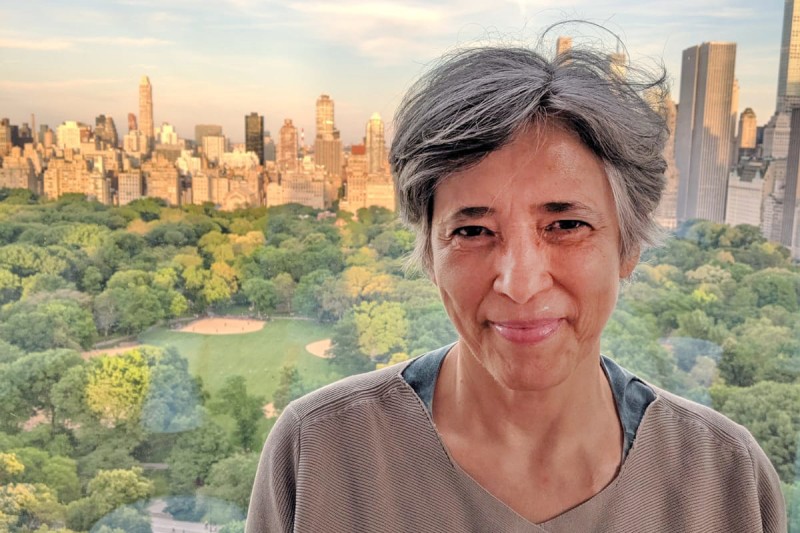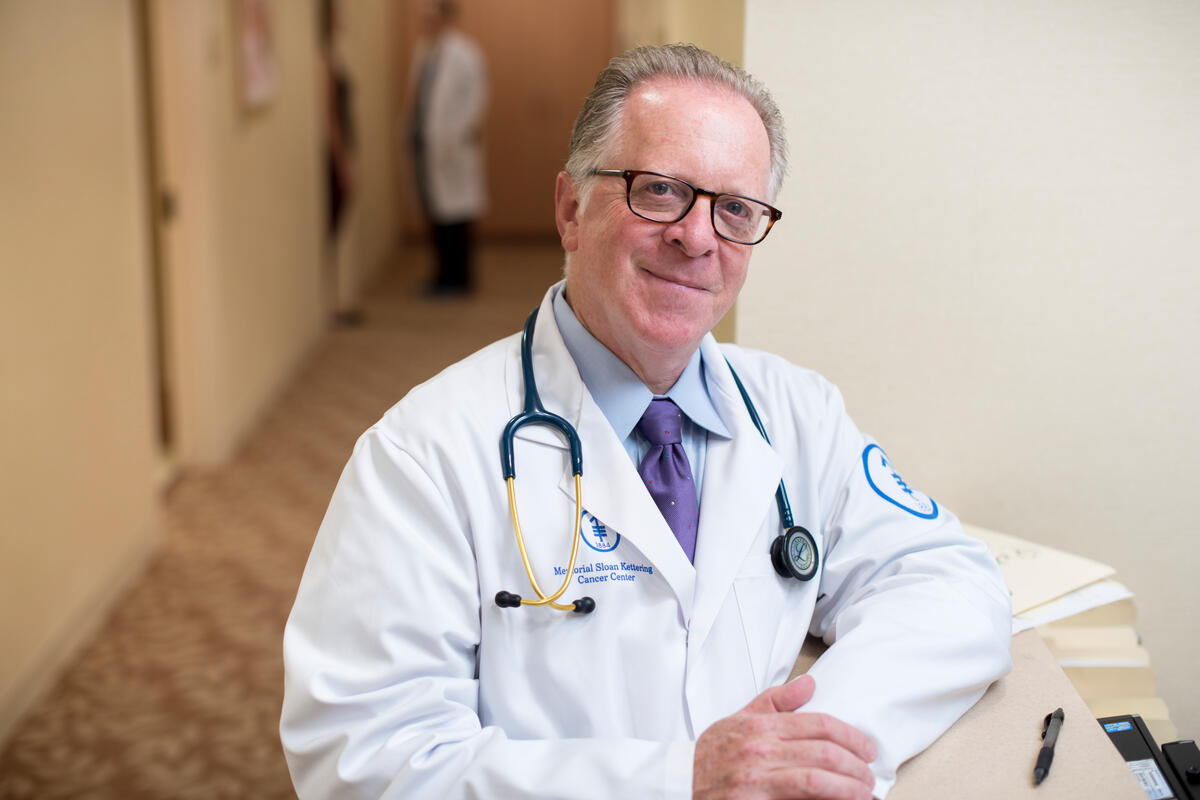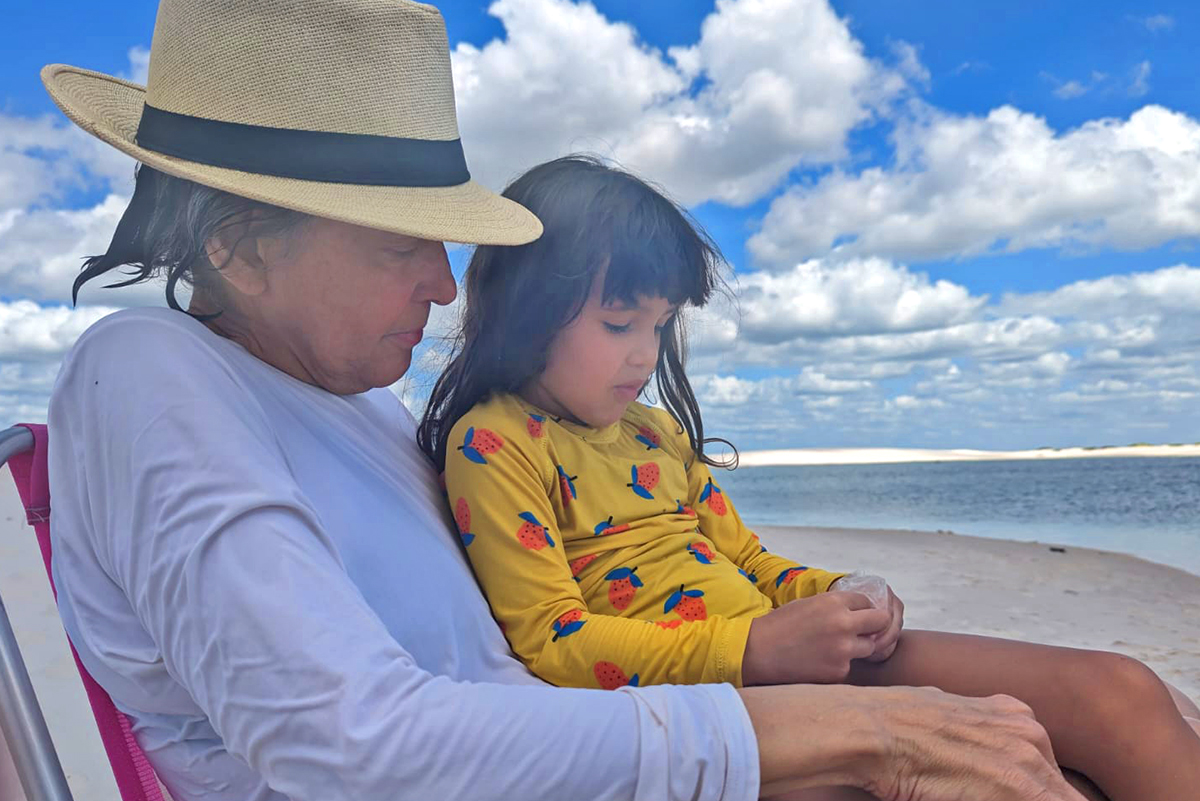
Most breast cancers are estrogen receptor (ER) positive, meaning they depend on estrogen to survive and grow. Doctors treat these cancers with drugs that cut off their fuel supply, an approach called endocrine therapy. Unfortunately, ER-positive breast cancers often become resistant to this treatment.
The outlook has been especially poor when the resistant ER-positive tumor is negative for a protein called HER2 — another important drug target — and carries a PIK3CA gene mutation.
Inavolisib Triplet Therapy Clinical Trial Results
Now a phase 3 clinical trial has shown that a new three-drug combination enabled ER-positive, HER2-negative breast cancer patients to have a median survival 26% longer than patients who received the standard therapy.
Results were presented May 31, 2025 at the annual meeting of the American Society of Clinical Oncology (ASCO) and published simultaneously in the New England Journal of Medicine. Medical oncologist and breast cancer specialist Komal Jhaveri, MD, helped lead the trial and is corresponding author of the study.
Triplet Therapy Details
The treatment combines a new targeted therapy, inavolisib (Itovebi®), with two older breast cancer drugs, the hormone therapy fulvestrant (Faslodex®), and the targeted therapy palbociclib (Ibrance®). Inavolisib, which targets PIK3CA mutations, appears to be a vital addition to making the triplet therapy more effective.
“This is the first time we’ve seen improvement in overall survival with any treatment targeting the PIK3CA pathway, which is urgently needed,” Dr. Jhaveri says. “In the past, triplet therapies given to this patient group were ineffective because they were too toxic. People could not tolerate the side effects. Now we’ve shown that if you can include a good drug like inavolisib, this approach will work.”

The U.S. Food and Drug Administration (FDA) had approved the triplet therapy for these cancers in October 2024, based on results from the same phase 3 trial that showed it more than doubled progression-free survival time — the period in which the disease didn’t worsen — compared with standard therapy.
“We were encouraged by the earlier results, but improvement in overall survival is always the ultimate test for any treatment,” Dr. Jhaveri says.
The side effects include high blood sugar, diarrhea, rash, and mouth sores, but not many patients discontinued therapy because of them, Dr. Jhaveri says.
Clinical Trial Details
The phase 3 trial involved 325 patients with ER-positive, HER2-negative breast cancers that carried PIK3CA mutations. In all cases, the cancer had returned during or within 12 months of completing endocrine therapy. There were additional disease features that gave patients a poor prognosis.
The trial participants were divided into two groups: One group received only fulvestrant and palbociclib; the other received the triplet therapy that included inavolisib.
-
Patients receiving standard therapy had a median overall survival of just 27 months. This increased to 34 months in patients receiving the triplet therapy with inavolisib.
- There was no significant difference in side effects in the two groups. In the triplet protocol, toxicity profiles were similar to what is expected of the individual drugs. Only 6.8% of patients in the inavolisib arm decided to discontinue the study.
Targeting the PIK3CA Mutation To Treat Metastatic Breast Cancer
Up to 40% of ER-positive, HER2-negative breast cancers have a PIK3CA mutation. PI3K inhibitors have shown promise for treating breast cancer — and some are already FDA approved — but the drugs have faced the challenge of serious side effects. Traditionally they have been offered to patients after their tumors progress on more conventional drug combinations, such as endocrine therapy and palbociclib.
However, for patients with a PIK3CA mutation who have recurrence while on endocrine therapy, or within 12 months of completing it, the triplet therapy adding inavolisib to fulvestrant and palbociclib is proving to be beneficial.
Dr. Jhaveri added that clinicians still must closely monitor potential side effects and step in quickly if support is needed.
MSK’s History Leading Clinical Trials of Inavolisib
Dr. Jhaveri has been closely involved in the clinical testing of inavolisib from the earliest stages of research. MSK played a leading role in the phase 1 trial testing the triplet therapy. The MSK team learned to manage side effects so that testing could keep moving forward.
Results from that phase 1 trial were published in the Journal of Clinical Oncology in September 2024 confirming the triplet therapy is safe and lending further support for the treatment approach.
“We have patients who started this therapy in the phase 1 trial who are still doing well five years later,” Dr. Jhaveri says.
Patient Travels From Another Country To Join Inavolisib Clinical Trial
One of the patients who has benefited from the triplet therapy is Beatriz Sawaya, who came to MSK from Brazil to participate in the phase 1 study. In 2016, Beatriz, a renowned author living outside Sao Paolo, had an ER-positive, HER2-negative breast tumor surgically removed. All seemed well until early 2019, when the cancer reappeared in her liver, lymph nodes, and spine.
Her doctor in Sao Paolo, Artur Katz, MD, had trained at MSK, and Beatriz was confident in his ability. But the outlook for controlling the metastasized cancer was not good.
“I was in his office with my three children, and my son Matias was asking Dr. Katz for a clear picture of my prognosis,” Beatriz says. “I decided I did not want to know and left the office. I later learned he told them I probably had about a year to live.”
Matias urged Beatriz to get a second opinion about the best treatment plan. Dr. Katz endorsed the idea and recommended she connect with MSK medical oncologist Andrew D. Seidman, MD. At that time, Dr. Seidman was the medical director of the Bobst International Center, which helps international patients arrange appointments and second opinions, either in person or through telemedicine.

Beatriz flew to New York. Dr. Seidman agreed with Dr. Katz’s plan, and Beatriz flew back to Brazil and began chemotherapy, knowing her prospects remained dim.
But two months later, Dr. Seidman called Dr. Katz and proposed Beatriz join the phase 1 clinical trial that had just launched to test the triplet therapy. Beatriz says the opportunity gave her hope at just the right time.
“It was a difficult period — my father had just died, and then I got cancer, and I was feeling very sad,” she says. “Then Dr. Seidman appeared like a light with the new treatment.”
Beatriz moved to New York for a short time, accompanied by her daughter, Julia, and began the triplet therapy. Soon after starting treatment, the cancer went into remission and the lesions in her liver shrank. Then the COVID-19 pandemic started, so Drs. Seidman and Jhaveri worked with the trial’s sponsor, Genentech, to arrange for Beatriz to receive her treatment in Brazil.
“It was a scary time, but MSK made it possible for me to move back home and stay on the drugs that have saved my life,” she says.
Breast Cancer Combination Therapy Continues To Be Effective
Five years later, Beatriz is still on the triplet therapy as part of the phase 1 trial. She has tolerated the drugs well, and her cancer has remained stable, which Dr. Seidman calls “remarkable.” She likes to go for walks and spend time with her three children and four grandchildren. Beatriz continues to write historical fiction and recently published the first book in a trilogy set during the Paraguayan War of 1864-1870.

“It was very, very hard when I thought I had a year to live, thinking about not seeing my granddaughter be born,” she says. “I am very happy and thankful because of the clinical trial, and I have a debt to Dr. Seidman for his care. He has always made me feel like a person who matters a great deal to him, and when I come to New York for follow-up exams, it’s like visiting a dear friend.”
Dr. Seidman said patients like Beatriz have played a crucial role in demonstrating that the triplet therapy had great promise. “Her participation in Dr. Jhaveri’s phase 1 trial helped set the stage for the larger phase 3 trial,” he says.
It has been gratifying, Dr. Jhaveri says, to see the new treatment move from initial testing to FDA approval, which will make the therapy accessible to patients around the world. “From the beginning, MSK has been closely involved in testing how people respond to this drug,” she says. “It’s a phenomenal story.”